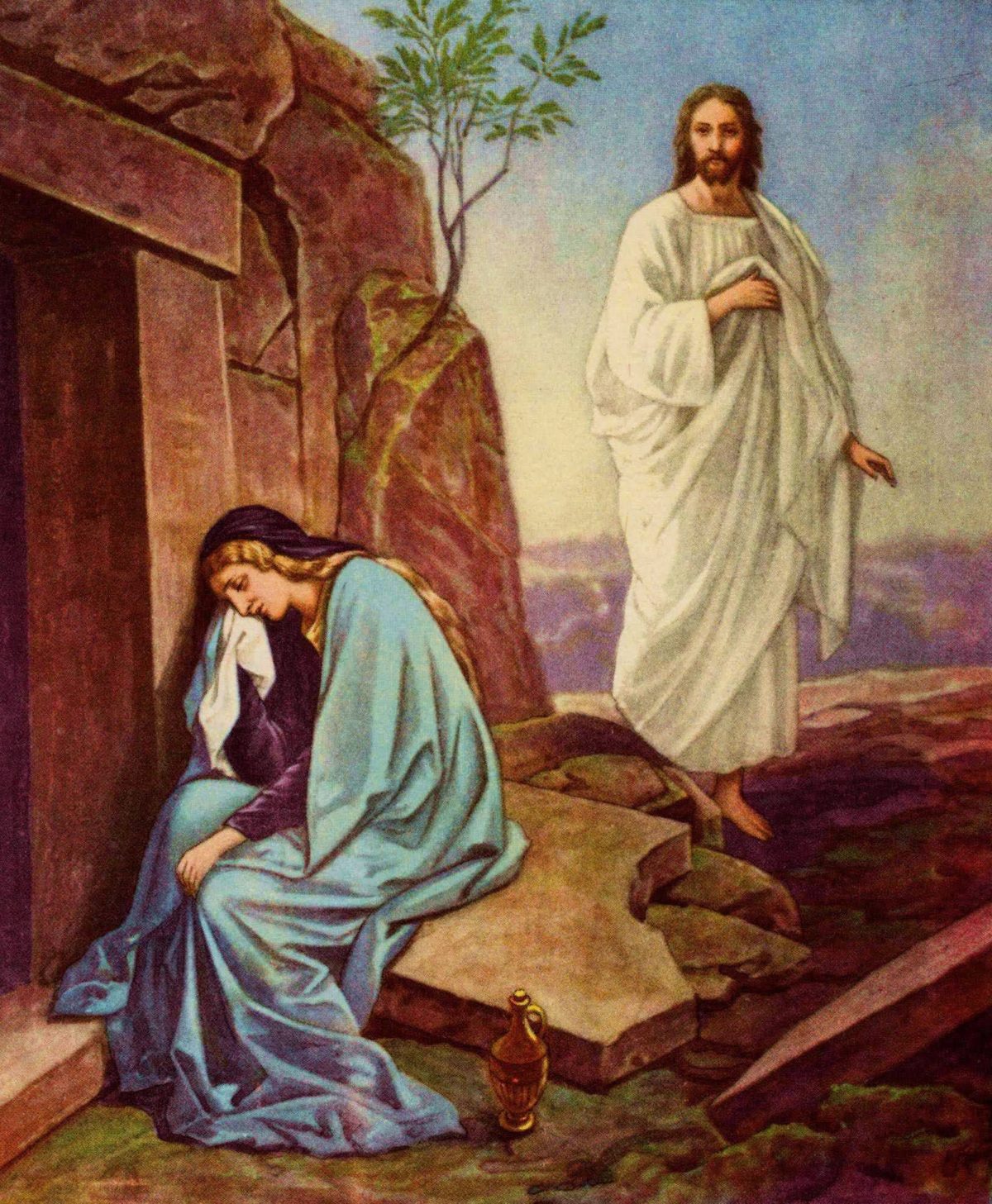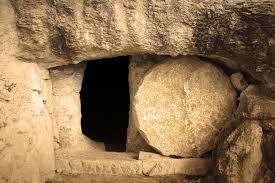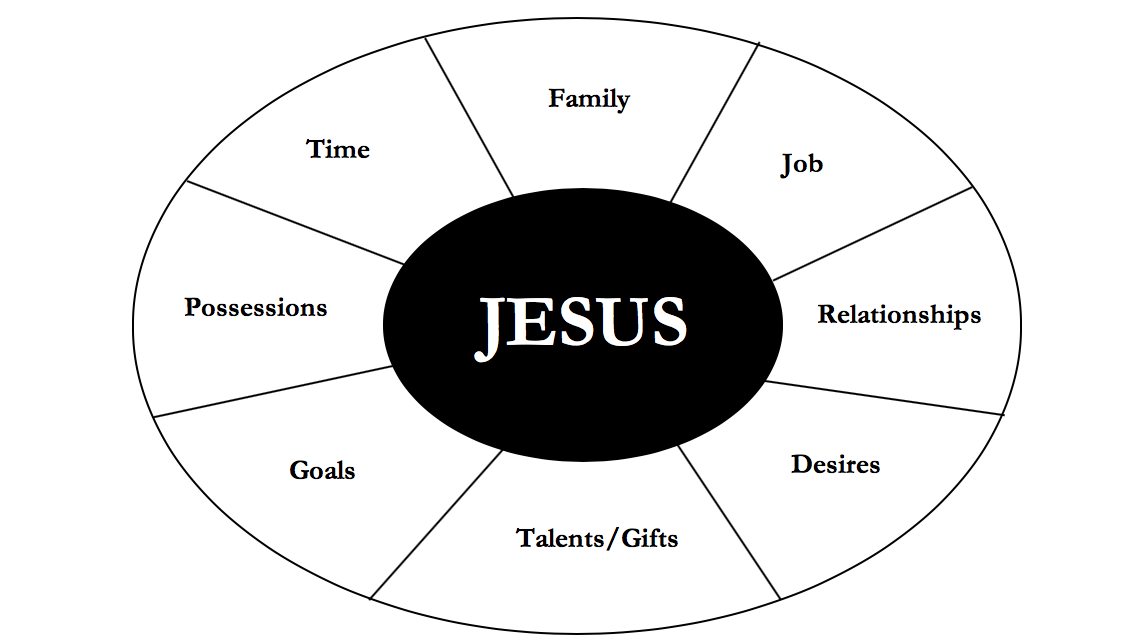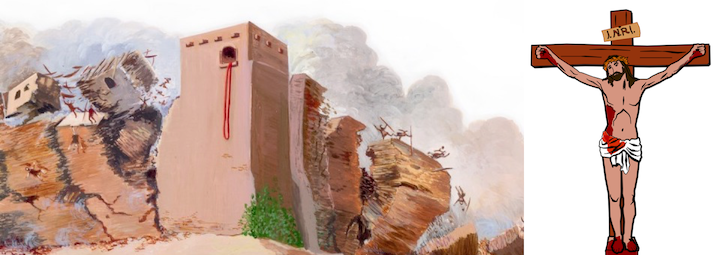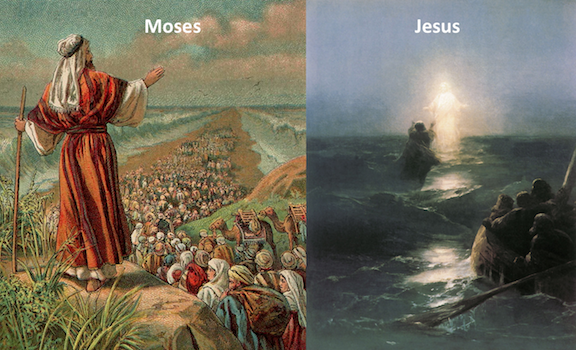“Jesus said to her, ‘Woman, why are you weeping? Whom are you seeking?’ ” John 20:15a
If we are going to believe in a resurrected Lord and the difference He can make in our daily lives, we need some answers for our hearts. Christ’s interaction with Mary Magdalene provides this for us. John may have been the first to believe Jesus’ resurrection (John 20:8), but Mary was the first to see the resurrected Lord (John 20:10-15a). Many students of the Bible refer to this as the greatest recognition scene in all of literature – Mary seeing Jesus unexpectedly. The incredible thing about this scene is Mary does not recognize Jesus at first.
“Then the disciples went away again to their own homes. But Mary stood outside by the tomb weeping, and as she wept she stooped down and looked into the tomb” (John 20:10-11). After Peter and John returned to their homes, Mary Magdalene returned to the tomb. She was weeping outside the tomb, stricken with grief over the death of Jesus and the confusion about His missing body. As she wept, she looked into the tomb.
“And she saw two angels in white sitting, one at the head and the other at the feet, where the body of Jesus had lain” (John 20:12). Even though angels had announced to Mary on a previous visit that Jesus had risen (cf. Luke 24:5-6), Mary still did not understand because grief had overtaken her. “Then they said to her, ‘Woman, why are you weeping?’ She said to them, ‘Because they have taken away my Lord, and I do not know where they have laid Him’ ” (John 20:13). These angels do not announce the resurrection of Jesus, instead they express amazement at her sorrow. “Woman, why are you weeping?” Christ’s resurrection was the least appropriate time for tears. But Mary did not understand that Jesus was alive!If she had believed the previous announcement of the angels that Jesus had risen, she would not be weeping. But overcome with grief, Mary wants to know where Jesus’ body has been taken. She had come to the tomb to complete the burial of Jesus, but even that had been taken away from her.
Look at what happens next. “Now when she had said this, she turned around and saw Jesus standing there, and did not know that it was Jesus” (John 20:14). Why didn’t Mary recognize Jesus? Two reasons why Mary could not see the risen Jesus:
Her TEARS. She couldn’t see Jesus through her tears. When the Bible says she was “weeping” [klaíō, κλαίω] (20:11, 13), it is not talking about a little tear making its way slowly down her cheek. It is a word for wailing or “weeping vehemently.” The tears were streaming down her face and had blurred her vision. We see in Mary someone with a broken heart after all she had been through. Because of those tears she couldn’t see Jesus. The second reason she did not recognized Jesus was…
Her FOCUS. It all has to do with her sight. She couldn’t see Jesus because she was focused more on the empty tomb that was in front of her than the resurrected Lord who was right behind her. She’s peering into this empty tomb trying to find the resurrected Lord when He’s standing right there ready to give her hope.
Some erroneously conclude that Mary did not recognize the risen Lord Jesus because it was a different person than Jesus. There is nothing in the biblical text to substantiate this. The same Jesus who died is the same Jesus who rose from the dead (see I Corinthians 15:1-8). Over five hundred eyewitnesses attest to this fact.
The empty tomb is a great thing, but it is the resurrected Lord we really worship. We don’t worship a tomb. We don’t worship a place. We worship the living Lord Jesus. Anytime we allow ourselves to focus more on some tradition, some place, some ritual and we get our eyes off the resurrected Lord, we start to lose hope. So Mary did not see the risen Lord at first because of her tears and her focus.
What happened to Mary can also happen to us. There are times in our lives when the resurrected Lord Jesus is right there in front of us and He wants to give us hope, but we don’t see Him because our emotions have blinded us or we have lost focus. It is easy today to loose focus on the Person of our risen Lord Jesus because of the impact the coronavirus is having on our lives. Nearly half of humanity is confined within their homes and apartments, hoping they won’t be added to the statistics that are tracking the deadly wake of COVID-19. As I’m writing this, there have been over 1.8 million confirmed cases worldwide and nearly 115,000 people have died so far. There will undoubtedly be tens of thousands of additional deaths before it is all over.
Mary is asked two questions by Jesus to help her find the answers her heart needed. The first question is “Why are you weeping? (John 20:15a). Mary’s heart is broken after all she has been through. She sees the cross and Jesus taken to the cross. She sees Him taken to the tomb and buried. Now three days later, she comes back to the tomb and thinks His body has been stolen. Because of this, she is deeply hurt. She is crying.
Some of us may feel like Mary did. Your dreams are at a dead end like Mary’s were. Or maybe our expectations take a total U-turn from what we thought was going to happen. Or the support that we have been depending on in our lives crumbles from beneath us. We know exactly the kind of feelings Mary felt at the tomb. Jesus is asking us, “What is making you hurt?” That is what Jesus was asking Mary and now He is asking us. “What is it that is making you hurt?”
Mary is so much like us. She reminds us so much of what we need when we hurt so deeply – to listen and realize that Jesus cares about the fact that we hurt, that He cares about the struggles we have been going through in our lives. For Mary, her hurt was keeping her from seeing God’s hand at work in her life. That can happen to me and to you. God does not want our hurt to keep us from seeing that He is at work in our lives. Jesus Christ is alive.
Martin Luther who started the Lutheran Church and pioneered the reformation, was obviously not a perfect person any more than the rest of us. But he had quite a wife. One day he was in a deep depression over something that had gone wrong. On the third day of his depression, his wife came downstairs dressed in mourning clothes. He asked her “Who’s dead?” Luther’s wife said, “God is dead.” He said, “What do you mean God’s dead? God can’t die!” His wife says to him, “I just thought He had died considering the way you’ve been acting the last three days.”
We can sometimes act like Martin Luther. Sometimes we act like Jesus isn’t alive. Yes, our world has drastically changed because of COVID-19. We are restricted to our homes most of the time. But what is more important? That, or the fact that Jesus is alive and guarantees a future resurrection and never-ending life to those who believe in Him (John 11:25-26)? Maybe some person offended you at work. What’s more real? That or the fact that Jesus is alive? Maybe you did not get something that you wanted to get. What’s more real? The fact you didn’t get something you wanted to get or that Jesus has a life for me in eternity?
But Mary is just like us. The little things hurt us not to mention the big things. Those little things grow into bigger things. For Mary this was the biggest hurt she had ever faced. Jesus came to her and said, “Why are you weeping?” He asks us that question too. He wants to know because the resurrected Jesus Christ has an answer for our hurt. He has a hope. That’s what the resurrection is all about.
Then He asks her a second question: “Whom are you seeking?” (John 20:15b). These questions had to do with her tears and her focus. Whom are you seeking? What are you looking for? As I read the Bible, I have noticed that God has the habit of asking great questions. The first question that God asks in the Bible, back in the book of Genesis, Adam has sinned. He’s hiding behind the bushes in the Garden of Eden and God comes into the garden and asks, “Where are you?” (Genesis 3:9). That’s a great question. God knew that Adam was behind the bushes. That wasn’t what the question was all about. “Where are you, Adam, in relation to Me? How come you are not fellowshipping with Me? How come you’re not close to Me?”
God asks great questions. Jesus Christ was in the habit of asking great questions. At the feeding of the four thousand He looked at the disciples and asked, “How many loaves do you have?” (Matthew 15:34). He says, “Just give Me what you have, and I will take care of the rest.” He asked His disciples, “Who do the crowds say that I am?” (Luke 9:18). Then He asked the disciples, “But who do you say that I am?” (Luke 9:20a). One of the greatest questions Jesus ever asked and He asked this one several times, “What do you want Me to do for you?” (Matthew 20:32).
Sometimes we need to stop asking God questions and let Him ask us questions. Take time to be quiet and listen to the risen Lord Jesus. Maybe He wants to ask, “Why are you hurting? Whom are you seeking? Where are you in relation to Me? What can you give to Me? What do you want Me to do for you?” Mary listened to these questions and her life started to turn around. Will you listen to God?
Some of you reading this article are restless and seeking answers for your fearful and hopeless heart. You may be seeking the Lord Jesus and not even know it. Jesus is inviting you to come to Him just as you are. Listen to His voice: “Come to Me, all you who labor and are heavy laden, and I will give you rest.” (Matthew 11:28). When you come to Jesus just as you are, He will give you spiritual rest. The rest Jesus offers here refers to a state of mind that exists when a non-Christian realizes he or she does not have to earn or work for their salvation (cf. Romans 4:5; Ephesians 2:8-9). This refers to the positional rest of eternal life that is based on trusting in Christ’s finished work on the cross alone (John 3:14-15; 19:30). Christ can give you everlasting life as a free gift because He paid for it through His death and resurrection (Romans 6:23b; I Corinthians 15:1-8).
If you came to Christ in faith just now, Jesus gave you everlasting life which can never be lost (John 10:28-29). God became your Father and you became His child forever (John 1:12). Jesus now lives inside of you through His Holy Spirit who will comfort, guide, and teach you so your life will magnify Jesus (John 14:16-17; 15:26; 16:13-14). Jesus wants to be your best Friend. You can get to know Him better by spending time with Him, talking to Him through prayer anywhere, anytime about anything (John 15:7; Philippians 4:6-7). Learn to listen to His voice as you read and study the Bible (2 Timothy 3:16-17). I recommend you begin with the fourth book of the New Testament, the gospel of John, because it is all about Jesus and how you can have everlasting life in His name. It will also reveal to you God’s plan and purpose for your life.
Prayer: My risen Savior and Lord, please forgive me for losing focus on You and Your resurrection. I have allowed so many things to distract me from what is really important. Thank You for coming to me with questions just like You did with Mary Magdalene that first Sunday after Your death and burial. Your questions show me that You really do care about me. You care especially about my heart. You care about my disappointments, my hurts, my needs, and my worries. Your presence in my life calms my troubled heart and assures me that there is hope for today and tomorrow, and all the tomorrows You graciously give to me. Thank You for helping me refocus on what is eternal. As I quiet my soul in Your presence, what would You say to me right now Lord Jesus? I am listening. In Jesus’ name. Amen.

